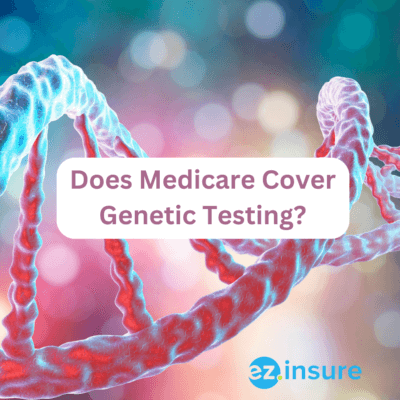
Types Of Genetic Testing
Mainstream adult genetic testing covers several conditions. These are usually categorized by function:
- Diagnostic, Predictive, or Presymptomatic – These tests are for patients who may have symptoms or know a certain medical condition runs in their family. A genetic test can show indicators for various cancers, polycystic kidney disease, and hemochromatosis. However, having indicators does not mean you will develop the disease. It just means you have the genes that can trigger it.
- Carrier – Even if a person never gets sick or shows signs of a disease, they may be a genetic carrier for that disease. A test that looks for DNA markers that show a person is a carrier of an inherited disease can tell them if they could pass this gene on to a child or if they already have. If the other parent is also a carrier, this test can also tell them if they have already passed this gene onto a child.
- Pharmacogenomic – The study of genetics is a big part of learning how the body breaks down drugs or responds to them. In some cases, a person’s genes can show whether or not a certain treatment will work or cause a bad response. This can help doctors tailor their treatment plan to the patient’s needs. Which can improve the chances of the patient’s health and healing going well.
Are There Risks To Genetic Testing?
 Most genetic tests have very few risks and may be as easy as swabbing the inside of a patient’s cheek. Other tests may need a sample of blood. Which can cause some of the usual side effects of having blood taken. This could lead to redness or soreness in the place where the injection was given. Genetic testing, like any test, can also lead to changes in your mental health. Depending on how bad the scenario is, genetic testing can take an emotional toll. This could happen while deciding if a genetic test is needed, while waiting for the results, or after a genetic problem has been confirmed. This is natural since the possibility of serious medical conditions can be scary.
Most genetic tests have very few risks and may be as easy as swabbing the inside of a patient’s cheek. Other tests may need a sample of blood. Which can cause some of the usual side effects of having blood taken. This could lead to redness or soreness in the place where the injection was given. Genetic testing, like any test, can also lead to changes in your mental health. Depending on how bad the scenario is, genetic testing can take an emotional toll. This could happen while deciding if a genetic test is needed, while waiting for the results, or after a genetic problem has been confirmed. This is natural since the possibility of serious medical conditions can be scary.
Keep in mind, genetic tests might be able to find out if a person has genetic markers linked to hereditary conditions. But they don’t tell us how likely it is that a person will get the disease. Or how signs might change or get worse over time. The health care worker who does the genetic test can tell you if there are any limits to the test and what it is usually used for.
Genetic Testing With Medicare
As we noted before, Medicare will pay for only a few types of genetic testing if you meet Medicare’s standards. If your doctor suggests that you get a genetic test it will most likely be covered because it will stem from a set of symptoms you’ve been showing. These are the genetic tests Medicare will cover:
- Molecular Diagnostic Genetic Test (MDT) – Involves looking at gene sequences for changes that could cause certain illnesses.
- Next Generation Sequencing (NGS) – NGS is a type of genetic testing that looks at many different parts of a person’s DNA at once. It helps doctors figure out how changes (mutations) in your DNA can show risk factors. And help them figure out what’s wrong with you.
- Pharmacogenomics (PGx) – As we noted above, this is a type of test designed to learn how your body will react to certain types of medication.
Medicare also pays for NGS genetic tests for both acquired cancer (caused by gene mutations) and germline cancer (which is passed down from parent to child). Medicare will also cover some types of genetic tests that are used to diagnose cancer. These tests help find biomarkers, which are signs of abnormal cell activity in your body. For example, Medicare pays diagnostic tests for breast cancer, prostate cancer, ovarian cancer, and pancreatic cancer for people who have never been tested for specific mutations (BRCA).
BRCA Testing
Medicare pays for genetic tests that look for changes in the BRCA 1 and BRCA 2 genes. Which are the breast and ovarian cancer genes. Medicare also pays for other genetic tests that can tell if someone has a BRCA gene. Research shows that both men and women with the BRCA 1 or BRCA 2 gene mutations are much more likely to get breast and ovarian cancer than people who don’t have these gene mutations. A test like NGS that looks at many genes at once can find changes in BRCA 1, BRCA 2, and other genes. This can help doctors figure out if someone has cancer or not. There is criteria to get testing for BRCA 1 and BRCA 2:
- You have to have pre-testing genetic counseling
- Testing must be relevant to your family history of cancer
- National Comprehensive Cancer Network rules say that you must meet certain standards to be eligible for testing for breast cancer or another type of cancer and one other type of inherited cancer.
When Does Medicare Cover Genetic Testing?
 Medicare will pay for genetic testing for certain conditions and PGx for medications. As long as your doctor orders it and it is done in a lab that is approved by the Clinical Laboratory Improvement Amendments (CLIA).
Medicare will pay for genetic testing for certain conditions and PGx for medications. As long as your doctor orders it and it is done in a lab that is approved by the Clinical Laboratory Improvement Amendments (CLIA).
Medicare covers genetic diagnostic testing for specific gene changes and NGS multi-gene panel testing if you have been diagnosed with cancer. If you meet Medicare’s requirements, NGS testing is also covered for other inherited diseases. Such as heart problems (cardiomyopathy, which is a problem with the heart muscle) and arrhythmia. Coverage for the Individual Plan may change based on where you live. For some medicines, PGx testing is also covered. Many medicines are broken down in the liver by enzymes like CYP2C19, CYP2D6, and CYP2C9. Doctors and pharmacists can better focus your medication therapy by testing your genes for these enzymes.
Medicare will pay for PGx testing for certain drugs like warfarin, clopidogrel, amitriptyline, and others if certain conditions are met. Your doctor can tell you more about the perks of PGx testing for you. The company that gives you your Medicare plan can tell you which PGx tests are covered by your plan. Medicare also lets MACs decide if they will cover NGS genetic tests that are not FDA-approved and other types of NGS genetic tests. For instance, for other types of cancer and other health problems.
Cost Of Genetic Testing
How much a genetic test will cost you varies based on the type of test, how it’s done (saliva or blood sample), and whether or not you meet the requirements for Medicare coverage. If your test is covered, you won’t have to pay anything as long as your provider accepts Medicare assignment. This means they agree to the payment terms set by Medicare. Costs for genetic tests can range from a few hundred to a few thousand dollars. So, it is important to make sure that Medicare pays for the test. Medicare has rules about who can get testing, and your doctor must give you an order for it. Medicare Administrative Contractors (MACs) may also have eligibility standards based on where you live.
Counseling With Genetic Testing

Get Covered With EZ
Medicare is great, but sometimes it can be hard to understand. Even after you sign up, you’ll still have to make some decisions about your health care. Don’t worry about asking questions. Talk to an EZ agent who can tell you what you need to do to sign up and explain everything to you. EZ can help you sign up, buy a Medicare Supplement Plan, or just think about your choices. Our insurance brokers work with the best firms in the country. You can get a free review of all the plans in your area from them. We’ll talk with you about your medical and financial needs and help you find a plan that meets them all. Call one of our certified agents at 877-670-3602 to get started.



